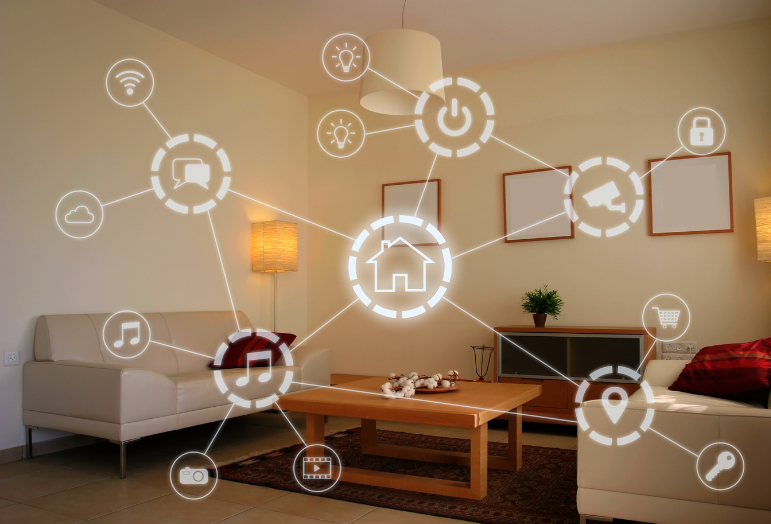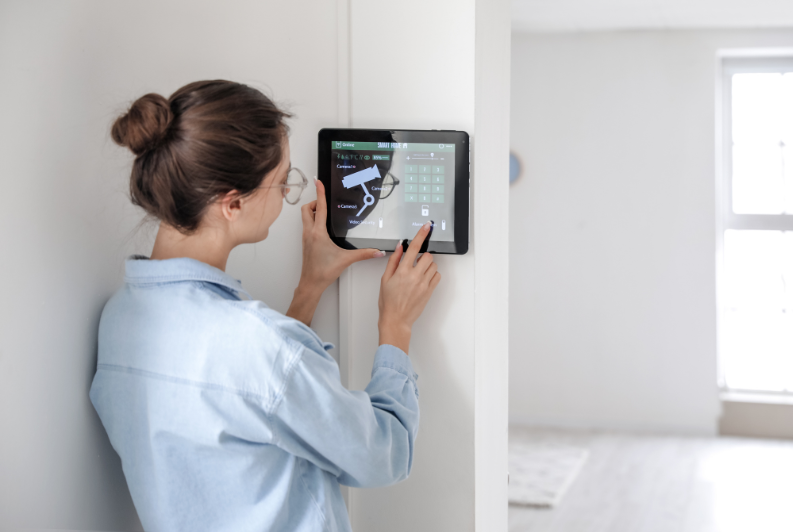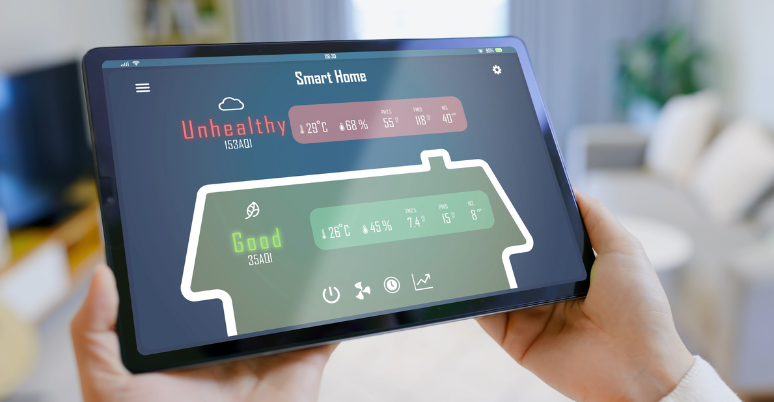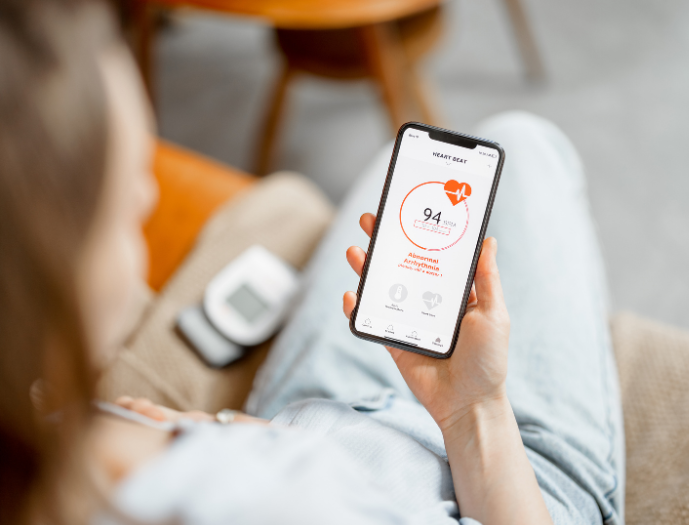
Advances in Smart Home Monitoring with AI
Patients with disabilities and older patients can benefit from AI monitoring homes via sensors and cameras [1]. For instance, AI can detect falls, dispense medications, and track a patient’s whereabouts as needed [1]. AI can also be paired with household machines like washing machines and refrigerators to ensure patients are sticking to healthy behaviors regarding hygiene and diets [1]. AI can go further and create personalized shopping lists for patients and even alert patients if a food item has gone bad to prevent food poisoning [1]. Furthermore, it’s crucial that AI can detect emergencies and adjust its algorithm during unpredictable circumstances. For instance, a dementia patient who may otherwise be prevented from wandering should be guided safely outside of the home during an emergency such as a fire.

Remote home monitoring can also be integrated with virtual reality to allow patients and providers to hold visits virtually [1]. For instance, people already use virtual headsets to attend workouts online [1]. Therefore, transitioning telehealth visits to implement virtual reality could be useful for various types of patients. For instance, people may feel more connected with their providers than during a telehealth visit. Furthermore, the use of sensors and cameras can assist providers in gaining more information than a typical telehealth visit offers. This integration will help bring doctors to patients’ homes without them physically having to be there. Patients with disabilities will also be able to use virtual reality to have more effective visits from the comfort of their homes. Overall, patients can benefit from telehealth visits that are done through virtual reality due to the increased personalization and involvement in care.
AI Benefits Smart Home Monitoring
AI is also useful in detecting illnesses in patients by tracking a patient’s home for health concerns and germs [2]. For instance, if AI detects infections in one’s home, it can use UV light to disinfect surfaces and protect immunocompromised patients. AI can also monitor a patient’s mental health and promote positive reminders such as setting up appointments and promoting self-care behaviors [2]. This is especially helpful for elderly patients who may need daily check-ins and alerts to ensure compliance with treatment plans. Furthermore, patients with chronic diseases and disabilities can also benefit from AI integration into smart home technology. For instance, patients with disabilities and patients with chronic conditions can seamlessly provide their doctors with their vitals without having to leave home [2]. Smart homes with AI can also personalize communication based on the patient’s disabilities. This means that voice or visual commands may be used to assist patients with care.

AI can also be used to personalize patients’ homes and provide more comfortable settings for them. For instance, AI can keep track of a patient’s sleep habits and set the lighting to give them a good night’s sleep [2]. AI can also monitor the temperature conditions in a patient’s home and automatically update the air conditioner for them [2]. This ensures that patients are reminded to get rest and doctors can track how much sleep a patient has received. AI can also detect changes in a patient’s sleep and suggest options such as counseling, community events, and even alert caregivers so a patient can manage any stressors that may be affecting their habits. Overall, AI can be integrated with smart home technology to improve patients’ care plans with personalized assistance.

Going Beyond Smart Home Monitoring
Remote patient monitoring using wearable devices can be integrated with smart home monitoring. For instance, although AI can detect falls in the home, AI should also work with wearables and sensors to detect falls outside of the patient’s house. This will require an infrastructure that can communicate with itself. Being able to integrate AI with wearables and smart home technology will promote whole person care. This means that patients will receive care based on multiple lifestyle and health factors. Overall, providers will have more access to patient data and can shift towards preventing health issues rather than treating them. Overall, AI will be a useful tool in integrating remote devices to be smart even outside of a patient’s home.

HITS
HITS provides management services and collaborates with clinicians in the development of health informatics. We provide tools that promote safe, timely, patient-centered, and equitable care. Our agency culture and mission facilitate customer and human-centered design. Additionally, we tailor software and project management support products to meet our customer’s needs. HITS also focuses on transforming health care by analyzing integrated medical solutions and evaluating information systems. We aim to enhance individual and population health outcomes, improve patient care, and strengthen the clinician-patient relationship. Finally, HITS expands the ability for individuals to safely and securely contribute relevant and usable electronic health information.